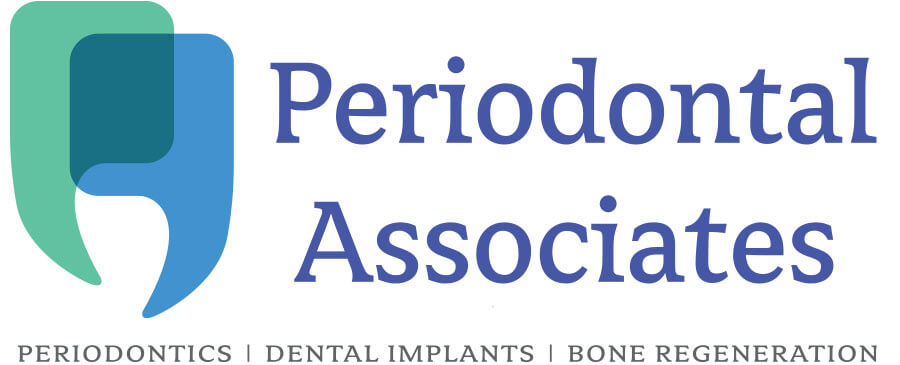
Periodontal disease is a bacterial infection of the gums, bones, and other tissues supporting teeth. Periodontal disease can lead to tooth loss if not treated promptly.
What causes periodontal disease?
Periodontal disease is a progressive condition that occurs when bacteria in the mouth build up and irritate the gums, leading to inflammation, gum recession, and eventual bone loss.
The bacteria in your mouth form plaque, which can lead to gum disease if not removed regularly. Periodontal disease may be influenced by age, genetics, and lifestyle factors such as smoking or drinking alcohol excessively.
Poor oral hygiene increases the risk of periodontal disease because it allows bacteria to accumulate on teeth and gums, leading to plaque build-up and allowing bacteria to settle in the area between your gum line and tooth surface (also known as pocketing).
How do I know if I have periodontal disease?
If you notice any of these symptoms, see your dentist as soon as possible:
- Red, swollen, or painful gums.
- Bleeding when flossing or brushing your teeth.
- Halitosis (bad breath) that doesn’t go away.
- Receding gums.
- Loose teeth.
What are the risks of periodontal disease?
Tooth loss. If left untreated, periodontal disease can lead to tooth loss.
Diabetes complications. Because diabetes impairs circulation and the immune response, it makes it more difficult for the body to fight infection. Diabetics are therefore at greater risk of developing periodontal disease. This means that even minor infections like those caused by plaque buildup can cause serious problems—including heart attack, stroke, or kidney failure—if they go untreated.
Increased risk of heart attack and stroke: Researchers at UCLA found that people with severe periodontal disease were more than twice as likely to develop coronary heart disease than those with healthy gums. Another study found that people with poor oral health were nearly twice as likely to suffer a stroke.
How is periodontal disease treated?
Periodontal treatment is based on your individual needs. Many people can be treated with non-surgical periodontal therapy, which includes scaling and root planing (deep cleaning)—a procedure that removes plaque and tartar from the tooth surface below the gum line. Scaling and root planing help reduce pocket depths, which can improve gum health and reduce your risk of tooth loss.
Antibiotic therapy may be prescribed if you have an infection caused by periodontal disease or if antibiotics are necessary before any other treatment begins. Antibiotics work by killing bacteria that cause infections.
In some cases, surgery may be necessary to help prevent further damage to your teeth or gums. Surgical treatments for periodontal disease can include flap surgery or gum grafting. During flap surgery, the gum tissue is lifted away from the tooth so that the roots and jawbone can be treated. In grafting procedures, tissue is taken from one part of your mouth and placed in another to help anchor loose teeth or repair areas damaged by periodontal disease.
Depending on the severity of your periodontal disease, you may require one or more treatments to restore your oral health.
What can I do to prevent periodontal disease?
There are several things you can do to prevent periodontal disease. The most important is keeping your teeth and gums healthy:
- Brush your teeth twice a day, and floss daily. Fluoride toothpaste helps strengthen the enamel of your teeth.
- Schedule regular dental checkups (at least twice a year) to ensure that there are no problems in the mouth that need attention.
- Maintain a healthy diet and lifestyle. Avoid high-sugar foods that can cause tooth decay, don’t use tobacco products, and limit alcohol consumption because too much can weaken tooth enamel.
Periodontal Associates Specializes in the Treatment of Periodontal Disease
Periodontal disease is treatable, but it’s best to catch it early for the best possible outcome. If you have any symptoms of periodontitis or are interested in further information about the treatment of periodontal disease, consult a dentist or periodontist.Call (508) 875-6185 today to schedule an appointment at our Framingham office or (617) 964-6185 for our Newton Centre office. We look forward to helping you maintain your oral health.
